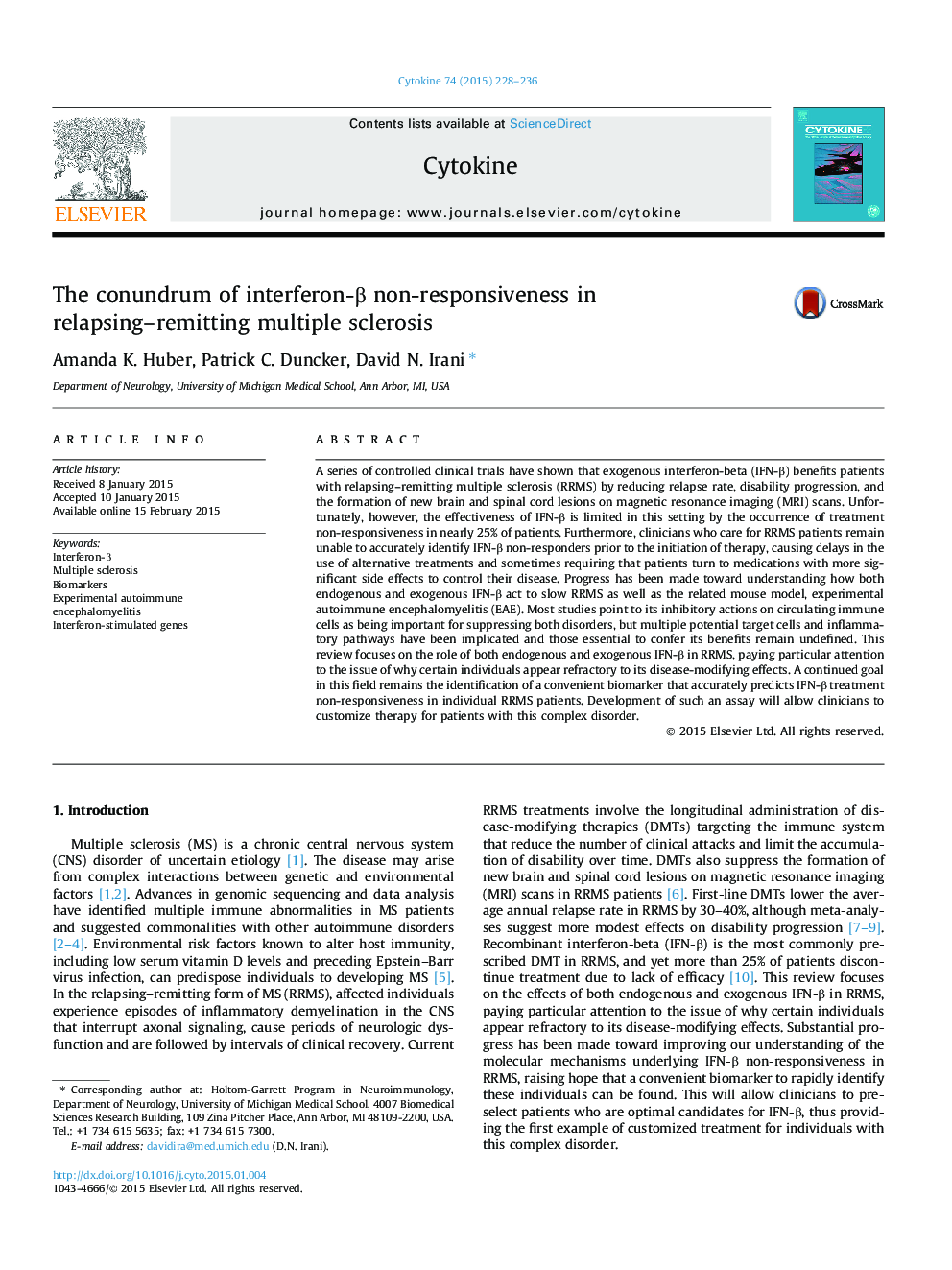| Article ID | Journal | Published Year | Pages | File Type |
|---|---|---|---|---|
| 5896967 | Cytokine | 2015 | 9 Pages |
A series of controlled clinical trials have shown that exogenous interferon-beta (IFN-β) benefits patients with relapsing-remitting multiple sclerosis (RRMS) by reducing relapse rate, disability progression, and the formation of new brain and spinal cord lesions on magnetic resonance imaging (MRI) scans. Unfortunately, however, the effectiveness of IFN-β is limited in this setting by the occurrence of treatment non-responsiveness in nearly 25% of patients. Furthermore, clinicians who care for RRMS patients remain unable to accurately identify IFN-β non-responders prior to the initiation of therapy, causing delays in the use of alternative treatments and sometimes requiring that patients turn to medications with more significant side effects to control their disease. Progress has been made toward understanding how both endogenous and exogenous IFN-β act to slow RRMS as well as the related mouse model, experimental autoimmune encephalomyelitis (EAE). Most studies point to its inhibitory actions on circulating immune cells as being important for suppressing both disorders, but multiple potential target cells and inflammatory pathways have been implicated and those essential to confer its benefits remain undefined. This review focuses on the role of both endogenous and exogenous IFN-β in RRMS, paying particular attention to the issue of why certain individuals appear refractory to its disease-modifying effects. A continued goal in this field remains the identification of a convenient biomarker that accurately predicts IFN-β treatment non-responsiveness in individual RRMS patients. Development of such an assay will allow clinicians to customize therapy for patients with this complex disorder.
